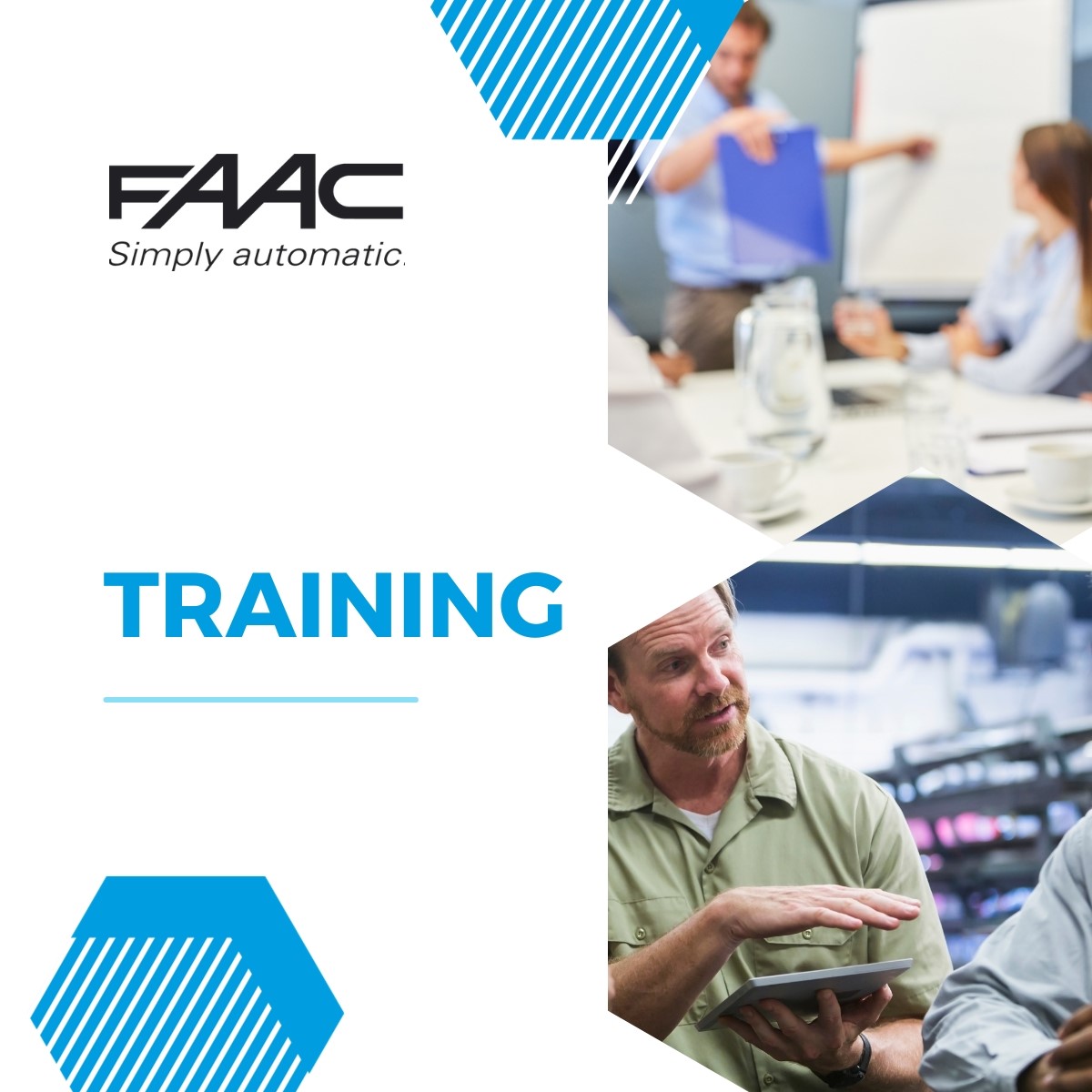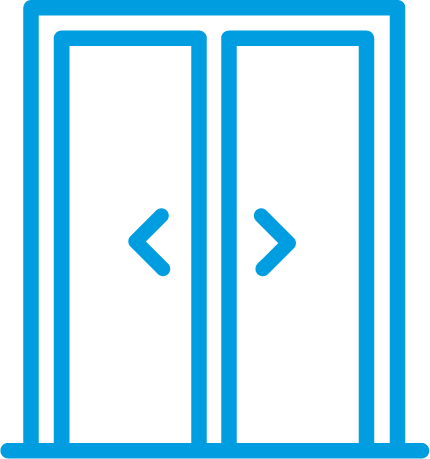Training
 Our Training Courses for Account holders.
Our Training Courses for Account holders.
1. Select Your Course Type: Browse through our range of courses and choose the one that interests you the most. We offer courses coving the main categories of automation.
2. Check Course Availability: View the upcoming months' available course dates on our interactive calendar. This handy tool ensures you can plan ahead and find a date that suits your schedule. If you can’t find a date that suits you, please contact us.
3. Book Your Space: Reserve your spot by selecting the date that works best for you.
4. Confirmation: Once your booking is complete, you'll receive a confirmation email with all the details you need, including course information, location, and any prerequisites.
Course details below:
| FAAC Barrier Training |
| FAAC Automatic Door Training |
|  | |
Familiarisation with the B614 and B680H. A presentation will cover, selecting the right system, installation requirements, installation method, board wiring, programming, and the range of accessories. Throughout there will be practical exercises on, installation, control board programming and maintenance processes. The full range of automatic bollards is also covered and a demonstration on servicing the J275 V2 bollard allows the attendees to get more hands-on experience with the equipment. | Familiarisation with A1000, A1400 A951, A952 and 950N2, models and accessories. Installation requirements, wiring and programming. Basic fault finding, use of a controller and servicing. | |
FAAC Sliding Gate Training
| FAAC Swing Gate Training | |
Familiarisation with different models, explanation of functionality and limitations of different operators. Installation requirements, fixing of racking, positioning of limits, etc. Safety requirements. Basic fault finding and servicing.. Programming of sliding gate control boards followed by practical wiring and set-up exercises. |
Familiarisation with different operators, explanation of functionality and limitations of different operators. Swing gate geometry calculation and determination of operator suitability. Safety requirements. Basic fault finding and servicing. Programming of a swing gate board followed by practical wiring and set-up exercises. | |
Introduction to FAAC
| ||
|